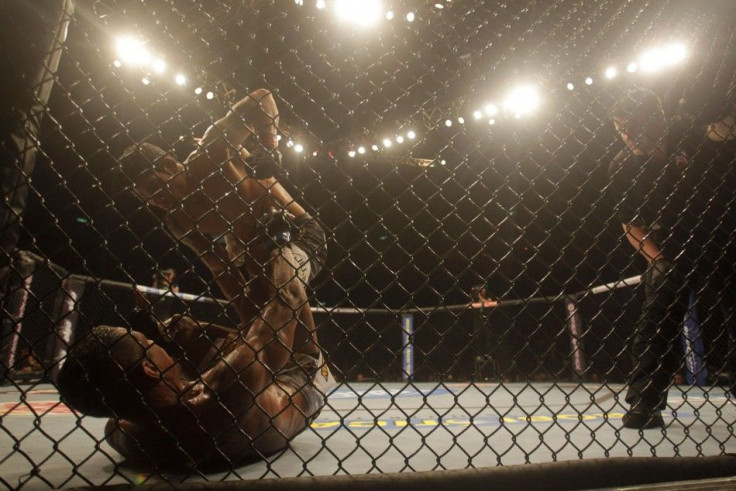UFC Was Never Meant For Network Television
Opinion

The Ultimate Fighting Championship (UFC) was never meant to be a mainstream sport. And by saying that, I in no way mean to discredit what the UFC athletes are able to do or the eminence of the organization. I respect both the UFC and its fighters tremendously.
As an obsessive boxing fan, I envy the structure that the UFC brings to the world of mixed-martial arts. The UFC stands as the undisputed king of governing bodies among all combat sports. And it's only growing in popularity and financially. The company continues to rake in huge sums of money for its top fights, gain more popularity, intrigue more people and try its hand in new markets -- whether it be UFC reality TV shows, UFC clothing or UFC action figures.
All the best fighters flock to UFC, and the company is able to demand that the best fighters take on the best challengers as a result. Compared boxing, a sport whose fans have been waiting for Manny Pacquaio to fight Floyd Mayweather Jr. for years, mixed-martial arts is in a prime position to gain more and more fans. But that doesn't make it fit for the mainstream.
In the UFC's network television debut, the biggest flaws of the sport were revealed. The UFC promoted the event as one of the most important fights ever for the company. In the one-hour, one-fight special on Fox, challenger Junior Dos Santos fought Cain Velasquez for the UFC Heavyweight Championship.
After all the hype, the fight ended in 64 seconds, revealing one of the greatest weaknesses of UFC competitions. UFC fights are either extremely technical grappling matches that change momentum in the blink of an eye, or they feature a flash knockout early into the fight. The UFC's network television debut, Velasquez vs. Dos Santos, was the later.
The problem is that few people are interested enough to watch the intricacies of Greco-Roman wresting or Brazilian jiu-jitsu. There are too many limbs, too many possibilities, and while the fighters struggle to position themselves for a submission maneuver, most fans are left bored by the stalemate.
On the opposite end of the spectrum, you have what happened in Velasquez vs. Dos Santos. The fight is hyped for several weeks, only to be finished early into the first round. That's the thing about the tiny gloves and no holds barred atmosphere of a UFC competition - flash knockdowns are more common than in boxing, and, because of it, great toe-to-toe competitions are lost.
The flaws of the extreme nature of the sport are only compounded by the quick turnover of UFC champions. The most prominent fighters in the sport haven't been able to defend their championships more than just a few times. Of course, there are a few exceptions to the rule, such as Anderson Silva or George St. Pierre, but for the most part, flash knockdowns and the unpredictable nature of mixed-martial arts make it hard for any fan to keep up. Look at Velasquez, who had won his UFC Heavyweight Championship just one fight before losing it to Dos Santos in 64 seconds.
It's not the management of the UFC that will prohibit the sport from moving forward. The UFC will continue to expand its brand name recognition, and people will continue to tune in and watch the big fights. Mixed-martial arts isn't going anywhere anytime soon, and, therefore, UFC won't be going anywhere either. But as for UFC being part of a dinner conversation in most American homes, that will never, ever happen. The sport is too volatile on too many levels.
© Copyright IBTimes 2024. All rights reserved.




















